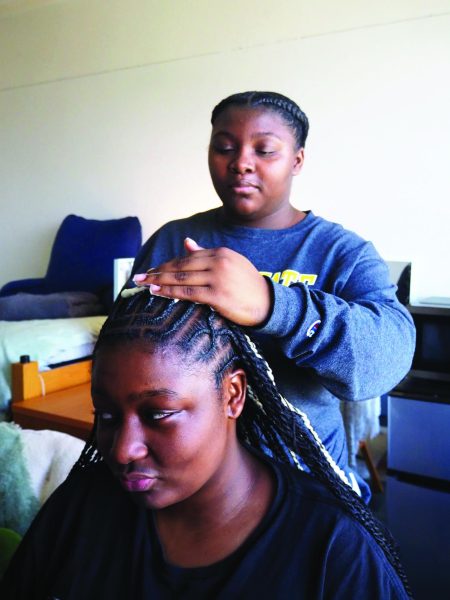Raising awareness about the Baha’i faith
February 25, 2015
All races and religions are one.
Men and women are equal.
Violence must be abandoned for peace.
And education is a universal right – and a universal responsibility.
Tomorrow (Thursday) at 4 p.m. in Connell 131, the campus community is invited and encouraged to learn about the Baha’i faith and the movement, Education Is Not A Crime. Followed by a brief discussion, the film “To Light A Candle” will be played, which was created by Iranian film producer, Maziar Bahari.
“It’s shocking that governments can still deny human rights, specifically education. We are trying to increase awareness on campus,” Chris Tee Weixelman, assistant professor of education said. “Students will be encouraged to make their opinion known to government officials to increase the worldwide outcry against the Iranian government’s suppression of education to the Baha’i people.”
Weixelman is a Baha’i of 22 years and a member of the Northeast Nebraska Baha’is. She also tutors Baha’i study groups.
Even today, the aforementioned ideas are considered radical in many parts of the world. In 19th-century Iran, they provoked social upheaval when they were professed to be the core tenets of a new religion: the Baha’i faith.
According to educationisnotacrime.com, the movement began in the 1840’s, when a young merchant known as the Bab broke away from Islam and stirred a religious revival. The movement was nearly squashed in 1850 (less than 10 years later) when Bab was executed. But among his most prominent disciples was the nobleman Baha’u’llah, who refused to be silenced even after the authorities imprisoned him.
In 1863, Baha’u’llah called for a new faith – one for all humanity.
His message attracted thousands of followers across Iran, many of whom embraced his revelation that people should take responsibility for investigating spiritual and moral truth themselves and that the nations of the world must unite into one peaceful civilization.
Over the next century, millions of people around the world would come to call themselves Baha’is, and many of them would also face persecution.
Today this conflict over higher education is still prominent in Iranian society.
When students go to a university in Iran, they must declare their religion – Islam, Judaism or Christianity. Iran is predominately Muslim, but the Iranian government also recognizes Christianity and Judaism. It doesn’t even acknowledge the Baha’i religion.
Because they were prohibited from attending college, the Baha’is started a movement to educate their youth, called the Baha’i Institute for Higher Education (BIHE).
Always on the run from the government, Baha’i doctors, teachers and higher educated individuals taught these underground classes. A few years ago the government raided their underground classes, smashed their computers, burned their books and arrested most involved, predominately teachers but also many of the students.
Many are still imprisoned today.
According to Weixelman, the government is avidly searching for and executing the Baha’i people. The court holds mock trials for the Baha’i, and once found guilty, they are executed.
The denial of human rights to the Baha’i culture is unjust and awareness needs to be spread.
Further information is available on www.educationisnotacrime.me, which entails multiple methods for people to get involved and make a difference.








